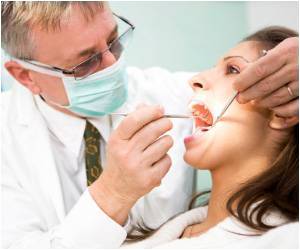Learn the early signs of wisdom teeth eruption: swelling, pain, redness, and more. Take proactive steps for dental care.
- Identifying early signs such as gum irritation and jaw pain can aid in proactive dental care
- Regular dental check-ups are essential for monitoring wisdom tooth emergence and preventing complications
- Seeking professional advice promptly can prevent more serious oral health issues
How to Know If Your Wisdom Teeth Are Coming in
Go to source).
Five Common Signs Your Wisdom Teeth are Coming In
1. Small White SpecksOne of the clearest signs that your wisdom teeth are coming in is the appearance of small white specks behind your second molars. These specks are actually the tops of your new teeth breaking through the gum line. If you notice these white specks, it’s a strong indication that your wisdom teeth are beginning to emerge.
Around 35% of people are born without wisdom teeth. #oralhealth #wisdomteeth #medindia’
The gums covering the area where wisdom teeth are about to emerge may turn red or dark pink as the teeth begin to push through. This change in color is due to the increased blood flow and inflammation in the gums as they prepare for the teeth to break through. Monitoring any changes in gum color can help you identify the early stages of wisdom tooth eruption.
3. Irritation in the Gums
One of the initial indicators that your wisdom teeth are starting to come in is irritation and swelling in the gums. You may notice this irritation specifically in the area behind your second molars, where the wisdom teeth will emerge. The gums may feel tender to the touch and can cause discomfort during brushing or flossing.
4. Jaw pain
As wisdom teeth begin to grow, they often cause a dull ache near the back of the jaw. For some individuals, this dull ache can escalate into more pronounced, frequent pain. This discomfort is due to the pressure exerted by the emerging teeth on the surrounding tissues and nerves. If the pain becomes severe or persistent, it is advisable to consult a dentist.
5. Difficulty Opening Your Mouth
As wisdom teeth begin to emerge, some individuals may experience difficulty opening their mouths fully. This limitation in jaw movement can be attributed to swelling, inflammation, or discomfort associated with the erupting teeth. Difficulty in opening the mouth can make tasks such as eating, speaking, and oral hygiene practices challenging. If you notice any restrictions in jaw movement, it's essential to seek dental evaluation to address the underlying cause and ensure proper management of your oral health.
What to Do Next?
If you're experiencing any of the signs that your wisdom teeth are coming in, it's essential to consult with your dentist or an oral surgeon for a comprehensive evaluation. They can assess the position and condition of your wisdom teeth using dental X-rays and recommend appropriate treatment options.In some cases, wisdom teeth may need to be removed to prevent complications such as impaction, infection, or misalignment of other teeth. Impaction occurs when the teeth do not have enough space to emerge or grow properly, leading to pain and potential damage to adjacent teeth. Infection can occur when partially erupted teeth trap food and bacteria, while misalignment can cause crowding and shift the position of existing teeth.
1. Non-Surgical Approaches: For mild symptoms, pain management, improved oral hygiene practices, and regular monitoring may be sufficient.
2. Surgical Interventions: If extraction is necessary, the dentist or surgeon will explain the procedure, what to expect during recovery, and how to manage post-operative care.
Seeking professional advice ensures that any issues related to your wisdom teeth are addressed promptly, preventing more serious complications and maintaining your overall oral health.
By consulting with your dentist and following their recommendations, you can navigate the emergence of your wisdom teeth with confidence and care.
In summary, recognizing the signs that your wisdom teeth are coming in can help you take proactive steps to maintain your oral health. By seeking timely professional advice and following recommended treatment plans, you can address any potential issues associated with wisdom tooth eruption and ensure a healthy smile for years to come. Remember, regular dental check-ups are essential for monitoring the progress of your wisdom teeth and addressing any emerging problems promptly.
Reference:
- How to Know If Your Wisdom Teeth Are Coming in - (https://www.stpirandental.co.uk/blogs/news/how-to-know-if-your-wisdom-teeth-are-coming-in)
Source-Medindia














